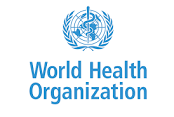HIV/AIDS has remained has a major burden for the population in Zimbabwe with the adult prevalence rate at almost 13 percent, the World Health Organisation (WHO) has said.
This comes as the world is commemorating World Health Day (WHD) under the theme #healthforall which looks at the attainment of Universal Health Coverage (UHC), where people can have access to affordable, equitable, good quality and sustainable health care.
In a statement, Friday, WHO said in Zimbabwe, several significant public health milestones have been realized over the past three decades.
“WHO has played a vital role in supporting the Government of Zimbabwe in attaining 90% immunisation coverage, eradicating Polio in 2005, and eliminating Maternal and Neonatal Tetanus in 2002, all of which have been sustained to date. Additionally, Zimbabwe has seen a reduction in morbidity and mortality due to vaccine-preventable diseases, resulting in a steady decline in maternal and under-5 mortalities,” the organisation said.
WHO said while current mortality rates remain unacceptably high, at 462 deaths per 100,000 live births and 65 deaths per 1,000 live births respectively, the continuous positive reduction of mortalities is encouraging.
“In 2020, Zimbabwe achieved the UNAIDS’s 90-90-90 targets, placing it among the few African countries to do so. The country is also making significant progress towards meeting the 2025 targets. Zimbabwe is now one of only three Sub-Saharan African nations to have met the UNAIDS’s 95-95-95 HIV objectives.”
Meanwhile, WHO said Zimbabwe is still grappling with the challenge of both communicable diseases such as HIV, TB, and non-communicable diseases like cancer and hypertension.
“Despite significant progress made in the fight against communicable diseases, particularly HIV and AIDS, it remains a major burden for the population, with an adult prevalence rate of 12.8%. Meanwhile, non-communicable diseases affect people of all ages and socioeconomic classes. Additionally, malaria continues to pose a significant threat to the health of Zimbabweans, contributing significantly to morbidity and mortality rates,” said WHO.
WHO representative in Zimbabwe, Professor Jean-Marie Dangou said the organisation’s 75th anniversary is a chance to come together around the common goal and renew commitment to accelerate UHC through accessing primary health care.
“WHO’s 75th anniversary is an opportunity to stop and reflect on the remarkable achievements in advancing the health and wellbeing of the people of Zimbabwe as reflected in the National Health Strategy (2021-2025) which seeks to improve the health and wellness of all Zimbabweans and eventually ensure UHC,” said Professor Dangou.
WHO said it remains committed to supporting the Government of Zimbabwe in achieving health for all and building resilient health systems that can withstand shocks, including those beyond the Covid- 19 pandemic.
The organisation also noted that in Sub-Saharan Africa, around 25% of health expenditure comes out of people’s pockets and as a result, hundreds of millions of people have been pushed further below the poverty line.
“African countries are facing unprecedented health emergencies, driven by conflict, political instability, and climate change. Climate events are driving outbreaks of measles, polio, cholera, and yellow fever.”
They added that the Covid-19 pandemic rolled back the hard-won gains made in health, with a drop in routine coverage of essential services having been noted.
“For example, WHO estimates that immunisation coverage will not return to 2019 levels until 2027 without immediate action to catch up and get back to normal.”

